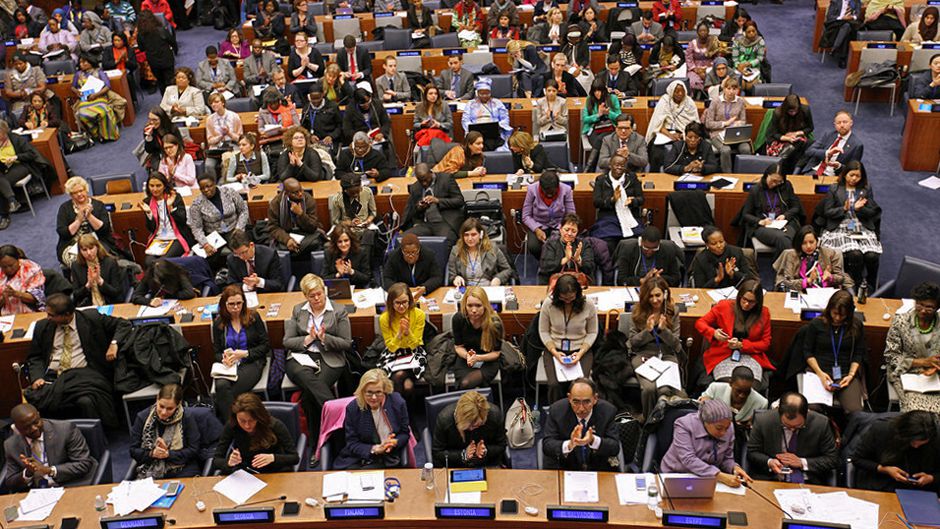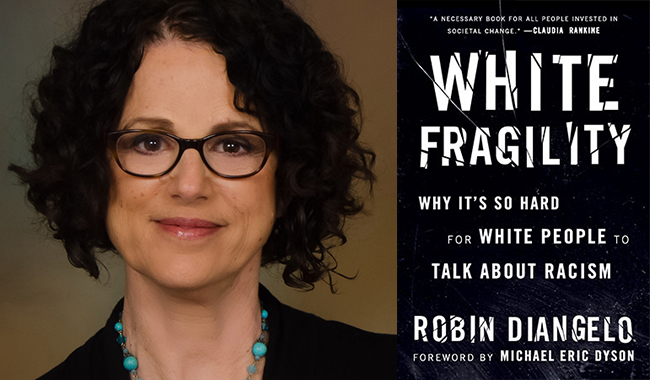
When the United Nations was founded in 1945, there were 51 member states and participation in the organization was relatively simple. A country had to sign the UN Charter drawn up in the charmingly informal setting of the San Francisco Performing Arts Center, and pay the necessary dues. Under Article 2.4 of the Charter, member states had to refrain from engaging in acts of aggression against each other, and as a quid pro quo, under Article 2.7, forswear interfering in each other’s internal affairs.[1] The only exception concerned ostensibly internal matters that presented a possible threat to external peace.
"Every one of the conventions that the US is being called on to ratify has a sting in the tail."
Today things are quite different. There are 193 member states, and the “threat to peace” criterion has become remarkably fluid, having been interpreted as allowing interference in a series of internal matters, from apartheid South Africa in 1962 to Iraq in 1991 and beyond. There has, moreover, been another important but less obvious development. Since the 1960s, under the aegis of the office of the High Commissioner for Human Rights, the UN has sponsored a long series of conventions that have gone well beyond the original Charter. Indeed, without exception, these conventions have encroached upon on what would otherwise be states’ internal affairs.
There are now nine such conventions, producing a forest of acronyms (for those interested, their texts are available here). Having begun in 1965 with the International Convention on the Elimination of All Forms of Racial Discrimination (ICERD), today they include the International Covenant on Civil and Political Rights (ICCPR), the Convention against Torture and Other Cruel, Inhuman or Degrading Treatment (UNCAT), the International Covenant on Economic, Social and Cultural Rights (ICESR), the Convention on the Elimination of All Forms of Discrimination against Women (CEDAW), the UN Convention on the Rights of the Child (UNCRC), the Convention on the Rights of Persons with Disabilities (CRPD), the International Convention on the Protection of the Rights of All Migrant Workers (ICRMW), and the International Convention for the Protection of All Persons from Enforced Disappearance (ICPPED).
In theory, all these instruments are entirely voluntary, and no nation has to agree to any of them. But the pressure to do so, both internal and external, is immense. All deal with matters that are difficult for a nation to disagree with, at least in principle, without sounding monstrously inhuman. Anyone who has doubts about the desirability of promoting children’s rights, about assisting the disabled, or about suppressing discrimination against women, is, to put it mildly, apt to begin the argument at a disadvantage. Then there is the pressure of sheer numbers. Almost every state in the world has accepted the first seven of these conventions, and even the remaining two (migrant workers and disappearance) each have 50-plus signed up. Most countries do not want to be seen as an odd man out.
What about the US? It has ratified the first three instruments, those dealing with racial discrimination, civil and political rights, and torture. But, unlike the other advanced countries, it has not ratified any others. To be sure, it has signed the ICESR, CEDAW, UNCRC, and CRPD, though it has never ratified them. The final two it has ignored entirely. (For those who need a reminder of the US legal position, signing a treaty involves a statement of approval but no commitment, and is the President’s prerogative; to become binding on the US the treaty must be ratified, a process requiring agreement by a two-thirds majority in the Senate).
How has the US managed to keep largely clear when most other countries have succumbed? Though reasons have varied, they have largely depended on domestic politics. Republican administrations viewed the ICESR as being un-American (more on this below). Democratic administrations had few problems with it, but let it wither on the vine because they did not wish to pick a fight with a skeptical Senate. The Carter administration sent the CEDAW to the Senate in 1980, but failed to raise sufficient enthusiasm. The CRPD was submitted to a vote in 2012, but failed to get the necessary two-thirds majority. The UNCRC has never even been submitted.
This exceptionalism may appear perverse, especially since the US is rather advanced in its domestic protection of many of the rights these conventions embody. A combination of the Constitution and pervasive anti-discrimination law at state and federal level places it comfortably ahead of most of the pack in this respect; and for that matter, one of the conventions in question, the CRPD, was itself inspired by the Americans with Disabilities Act. No wonder, then, that academics, pressure groups, and organizations such as Amnesty USA consistently call for the US to come off the fence and join the six remaining conventions. True, there is an element of partisanship here. Those urging ratification are predominantly liberal; in the case of the four signed but unratified conventions it was impeccable liberals who signed (Jimmy Carter in three cases, Barack Obama in one): and it is a far from liberal Trump administration that is not ratifying. Nevertheless, even taking all this into account one can understand why people think the US has nothing to fear from agreeing to protect at the international level rights it is only too happy to protect at home.
To begin with, at least one of these conventions, the ICESR, provides obvious reasons for unease. The US constitutional and libertarian tradition is traditionally one that assigns primacy to negative political rights—essentially Isaiah Berlin’s “negative liberty,” or a right to freedom from the state, leaving citizens free to live, sink or swim without external interference. The ICESR, by contrast, is exactly the opposite. It unashamedly affirms positive rights to state action, guaranteeing such things as an “adequate standard of living,” the “highest attainable standard of physical and mental health,” and higher education “equally accessible to all, on the basis of capacity, by every appropriate means, and in particular by the progressive introduction of free education.” Now, while these may be laudable aims, for the US to commit to them as a matter of international law would involve essentially sidelining some 250 years of history.
One could say, of course, that the ICESR is an outlier. Still, there are other difficulties with the UN human rights treaty system.
For one thing, the conventions are not what they seem on a first or superficial reading. Take CEDAW, for instance. Its headline provisions are actually quite sensible, or at least represent things most rational people can live with: sexual equality before the law, equal rights to nationality, no arbitrary exclusion from the professions on grounds of sex, a requirement for an anti-discrimination law, and paid maternity leave. Yet there is a bait-and-switch element here. Read further, and you find sections mandating (for example) the “elimination of any stereotyped concept of the roles of men and women” throughout the education system, including where necessary the rewriting of textbooks, and also measures to “modify the social and cultural patterns of conduct of men and women [sic], with a view to achieving the elimination of prejudices and customary and all other practices which are based on the idea of the inferiority or the superiority of either of the sexes or on stereotyped roles for men and women.” A state cannot pick and choose between the rights it commits to within a convention, and a document binding it to matters of the latter sort is not to be taken lightly.
The UNCRC suffers from much the same difficulties. Who could object to such things as protection for a child’s right to life, family, home, and health, or to its safeguarding from neglect, trafficking, exploitation, violence, and drugs? Who indeed? But once again, we quickly get into muddier water. Freedom of expression and association for children on the same basis as such freedom is extended to adults, explicitly required under the convention, threatens parental authority. So does the innocent-sounding protection of privacy, potentially allowing (for example) prescription of contraceptives to under-age children, with parents or guardians deliberately kept out of the loop. The requirement in Article 26 to “recognize for every child the right to benefit from social security” is sure to encroach upon state budgetary policies. Even the CRPD, the most “American” of all the conventions, requires a ban on differential treatment in life insurance and official recognition of intersectional discrimination theory. Not to mention a worryingly “positive liberty” requirement, lifted from the ICESR, of measures to provide an ever-increasing standard of living.
Another problem is imprecision. Nations are rightly wary of signing blank checks, and a difficulty with all these conventions is their vague wording. CEDAW, for example, requires states to make available “social services to enable parents to combine family obligations with work responsibilities and participation in public life, in particular through promoting the establishment and development of a network of child-care facilities.” It also mandates “access to health care services, including those related to family planning.” Just what this verbiage requires is obscure. At any rate, it could be taken as requiring free universal childcare or ready access to abortion. The ICESR, for its part, requires promotion in all employment to be “subject to no considerations other than those of seniority and competence.” That’s all very well, but might it require a ban on the owner of a family business promoting his wife or son over other workers? Under the ICRMW states must “take appropriate measures to ensure the protection of the unity of the families of migrant workers” and “facilitate the reunification” of such workers with spouses, partners and children. How far does this require states to adopt open-door immigration policies with respect to such people? There is a requirement, again, in the UNCRC to “take all appropriate legislative, administrative, social and educational measures to protect the child from all forms of physical or mental violence.” Where does this leave the power of parents, or schools, to control children? Does it require a total state ban on physical punishment? We do not know, but it might.
You might think that such uncertainties should not concern the US. Imprecision, after all, cuts both ways. Imagine the US, having signed up to this raft of conventions, facing a complaint that it is in breach of the UNCRC by allowing corporal punishment in the home, or in schools in the deep South; or that by refusing entry visas to children of Guatemalan migrant workers it had infringed the ICRMW. Surely the US would simply be able to claim that that was not how it read the treaty, and that in the absence of clear words it was entitled to the benefit of the doubt on an allegation of breach.
And yet the issue is not so simple. Every one of the conventions that the US is being called on to ratify has a sting in the tail. Every instrument sets up a committee of around 20 “experts” of “high moral character” tasked with keeping the instrument under review and overseeing states’ compliance. These committees are made up of apparatchiks drawn from the ranks of reliable rights activists in the relevant area. (That for CEDAW, for example, currently includes a professor of Gender, Social Change and Development; directors of a Gender Studies Center and of a Women’s Human Rights Training Institute; and the Chairperson of the South Caucasus Women’s Congress, whatever that is; you get the picture). Each member state of a given convention has to report to the relevant UN committee every four years or so on progress, rather in the manner of a student on probation. For its part the Committee, having read the report, is encouraged by the terms of each of these treaties to make what are referred to as “suggestions” and “recommendations” to the particular state. In practice this means drawing up a list of measures which that state has to take in order to comply with the particular convention. How far such reports are to be regarded as authoritative on matters of what the convention requires is not entirely clear, but the prevailing view appears to be that as a matter of international law they carry a good deal of weight.
If anyone is in doubt as to the demands the US might face from these committees, he could do worse than consider the recent experience of the United Kingdom. For it has ratified all the UN human rights conventions except two, and it is a more liberal democracy than many. Three years ago the UK got its UNCRC report card from the Committee on the Rights of the Child. This body insisted that the British government was obligated under the convention to do the following: sever all effective links between schools and the armed forces, including Army recruitment as part of careers advice; provide abortion effectively on demand for all ages throughout the UK, including Northern Ireland; ban all marriage under 18; immediately impose state-regulated LGBT-friendly sex education on all, no exceptions or opt-outs allowed; cease all detention of child asylum-seekers; set up youth parliaments; abolish ability-selective education; include children’s rights compulsorily; and prohibit corporal punishment within the home. Don’t see any of these in the convention? No matter. All of that, according to the committee of experts, is what it means.
Nor was this a one-off. This year it was the turn of the Committee on the Elimination of Discrimination against Women appointed under CEDAW to report on the UK. Its modest demands, following the usual fact-finding mission, included such gems as the enactment of laws requiring all public authorities to promote socio-economic equality, with particular reference to intersectionality; an undertaking to remain in lockstep with EU women’s rights after Brexit; the locking-in of women’s rights as a central condition of all future third-country trade agreements; government engagement with the media (in plain English, pressure) to eliminate stereotypical imaging of women; the imposition on all schools of a requirement for “positive and diverse gender portrayals”; no-fault divorce on demand; and abortion on demand in Northern Ireland (where laws are currently restrictive). Oh, and other small things too: “temporary special measures” had to be taken to achieve female parity of representation in Parliament, the judiciary, the Foreign Service, and British embassies abroad.
Such demands for the sidelining of the democratic process on important matters of social policy are outrageous. To its credit, the UK has so far politely brushed aside the majority of these demands (though no doubt pressure will build here). But that they were made reveals the agenda behind the UN human rights treaty system. Pressure-groups in the US may bill ratification as a modest opportunity for the nation to show its commitment to humanitarian values, without the need to make substantial changes in its system of government. Still, these events tell a rather different story. We must remember that UN personnel, almost to a man, embrace a left-liberal, almost Nordic socialist, mindset. Obsessed with identity politics, impatient with religion and marriage, they favor state intervention in cultural as well as economic life. Their incomprehension at any disagreement with these values, which they see as wholly benevolent, matches their view that, if necessary, these values should be imposed as a matter of human rights standing above and outside the democratic process.
If all this is right, the choice confronting American politicians is clear. They can sign up to these treaties as a way of keeping the activists quiet. Many want to do this; perhaps surprisingly many (for instance, it is worth remembering that when the Senate voted on the CRPD it was supported by 61 to 38, missing the necessary two-thirds supermajority by only five). But if they do follow this line, American politicians need to know that they will be accepting an alarming degree of UN mission creep and the power grab that underlies it. And, sooner or later, the US will get the same treatment that the UK did.
On the other hand, of course, they could just continue to regard the UN in the way it was regarded in 1945, as a body dedicated broadly to letting nations and electorates go their own way, provided they let their neighbors alone. Which they choose is up to them—but they cannot say they have not been warned.
Notes
[1] “Nothing contained in the present Charter shall authorize the United Nations to intervene in matters which are essentially within the domestic jurisdiction of any state.”

